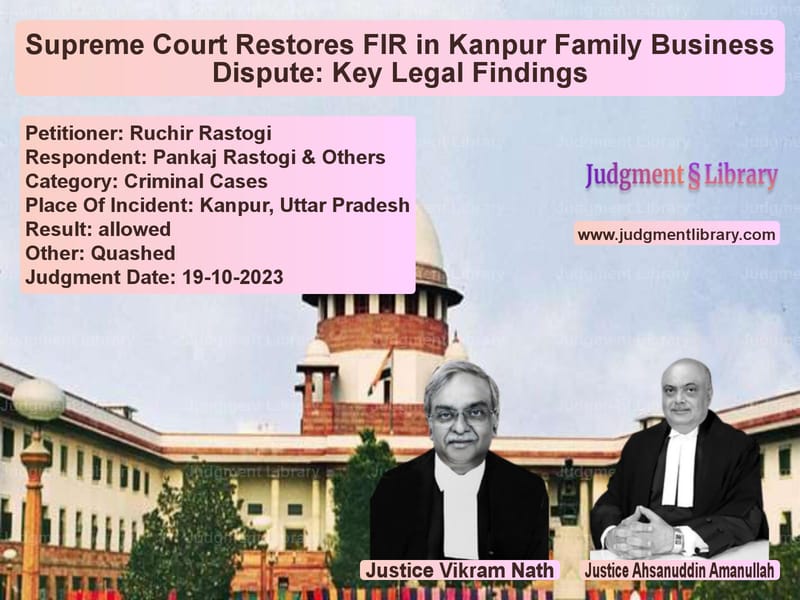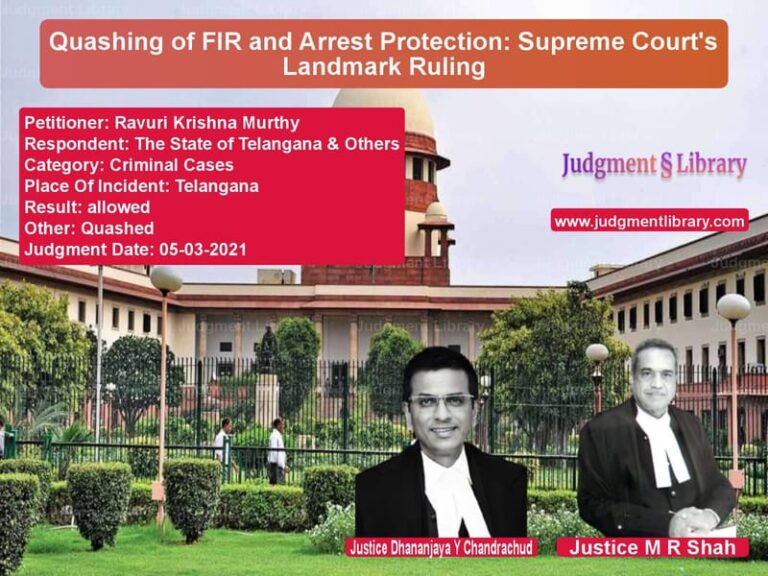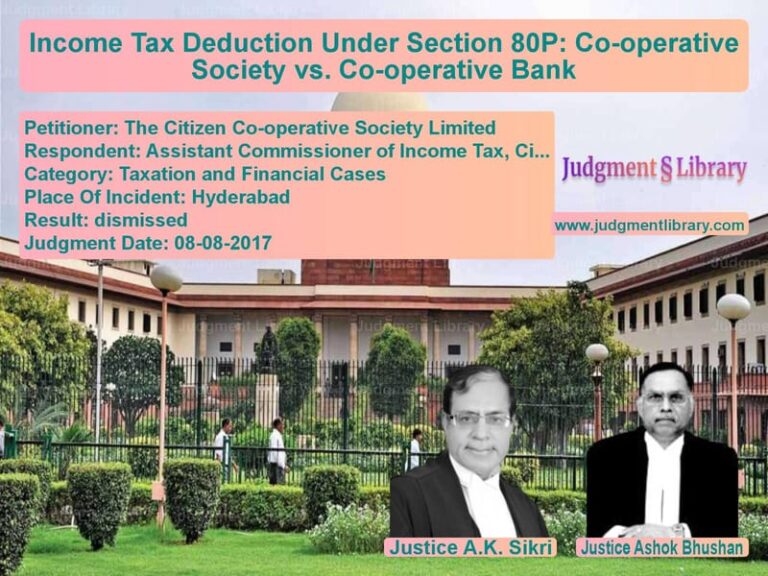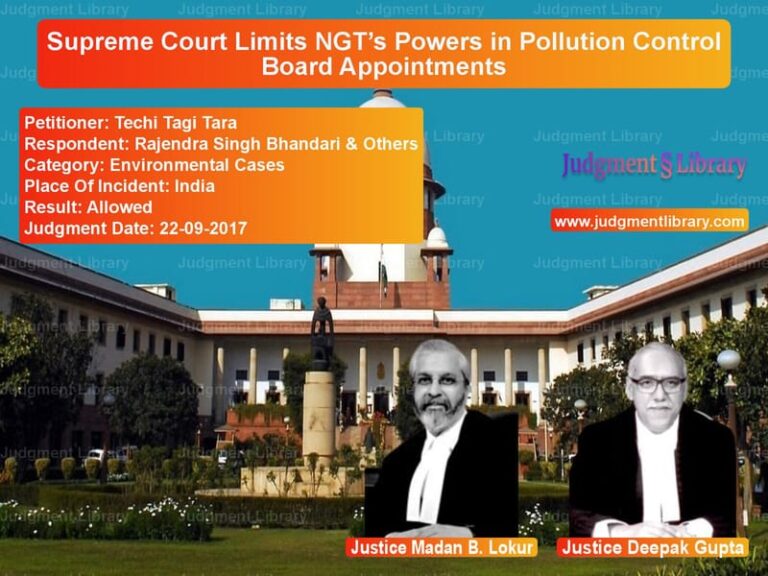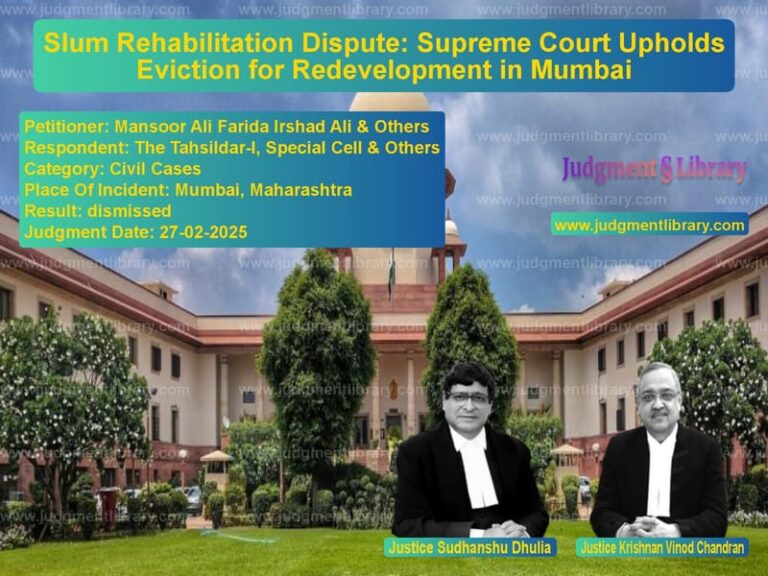Supreme Court Restores FIR in Kanpur Family Business Dispute: Key Legal Findings
The Supreme Court recently delivered a significant judgment in the case of Ruchir Rastogi vs. Pankaj Rastogi & Others, reinstating an FIR that was earlier quashed by the Allahabad High Court. The case revolves around a complex family business dispute, allegations of theft, and breach of a partnership agreement involving valuable assets. The Court’s decision clarifies legal principles regarding the quashing of FIRs and the role of injunctions in preserving business properties.
Background of the Case
The dispute originates from a long-standing business relationship between the appellant, Ruchir Rastogi, and the primary respondent, Pankaj Rastogi. Both belonged to the same family and had inherited a business running in shop No. 26/59, Kanpur. The premises were taken on rent from Ms. Urmila Gupta, and both parties operated the business as partners under a deed dated 1st April 2012. They managed the shop as Kartas of their respective Hindu Undivided Families (HUFs).
Dispute Over Business Dissolution
The conflict arose when Pankaj Rastogi served a legal notice on 27th May 2013, expressing his intent to dissolve the partnership from 1st June 2013. He allegedly retained the shop keys and restricted Ruchir’s access to the business premises. In response, Ruchir filed an application under Section 9 of the Arbitration and Conciliation Act, 1996, seeking intervention by the District Judge, Kanpur.
On 1st July 2013, the District Judge passed an interim order preventing either party from opening the shop without the other’s presence. A court-appointed Advocate Commissioner was directed to serve notices to the parties.
Arbitral Award and Further Developments
- On 2nd August 2013, arbitrators were appointed to resolve the differences.
- On 11th November 2013, the District Judge ruled that the business assets in the shop should be preserved until an arbitral award was issued.
- Eventually, the arbitral award (29th August 2013) recognized that the shop would remain in the exclusive possession of Ruchir and his father.
Sale of the Shop and Eviction Proceedings
During the ongoing dispute, Ambuj Rastogi, one of the respondents and a relative of the parties, purchased the shop from the landlord, Ms. Urmila Gupta, in the name of M/s Sushma Constructions Pvt. Ltd. on 12th December 2013. Subsequently, Sushma Constructions initiated an eviction suit against Pankaj Rastogi, which was dismissed in 2015. However, in 2018, the Allahabad High Court overturned the dismissal and directed Pankaj Rastogi to vacate the premises within 30 days.
Following the High Court’s order, on 11th October 2018, Pankaj Rastogi surrendered possession of the shop to Sushma Constructions. Soon after, the locks of the shop were changed, and a board was installed, indicating new ownership.
Filing of the FIR and Allegations
On 22nd October 2018, Ruchir Rastogi filed an FIR under:
- Section 457 IPC (Lurking House Trespass)
- Section 380 IPC (Theft)
- Section 506 IPC (Criminal Intimidation)
The FIR alleged:
- The shop contained 100 kg of gold, 500 kg of silver, 10,000 carats of diamonds, and 5,000 carats of gems.
- Pankaj Rastogi and others had unlawfully entered the shop, changed locks, and removed all valuable inventory.
- When confronted, Pankaj allegedly threatened Ruchir with dire consequences.
High Court’s Decision to Quash FIR
The respondents challenged the FIR in the Allahabad High Court, arguing that no offense was made out. The High Court, in its ruling on 15th April 2019, quashed the FIR, reasoning that:
- The elements of theft (Section 380 IPC) were not satisfied as the premises were handed over voluntarily through eviction.
- No evidence suggested that the respondents had broken into the shop, negating Section 457 IPC.
- Threats (Section 506 IPC) were not proven beyond mere allegations.
Supreme Court’s Reversal of the High Court’s Decision
The Supreme Court examined whether the High Court was justified in quashing the FIR and held that:
- The injunction order of 2013 was in force, directing that the shop’s assets should be preserved.
- Pankaj Rastogi had knowingly violated the order by surrendering possession.
- The removal of assets without Ruchir’s knowledge could amount to theft.
- The High Court had prematurely dismissed the case without allowing an investigation.
The Court stated: “The presence of an injunction order meant that the shop and its assets had to be preserved. The alleged removal of assets without the complainant’s knowledge prima facie indicates an offense.”
Read also: https://judgmentlibrary.com/criminal-case-dismissed-supreme-court-overturns-section-319-crpc-order/
The Supreme Court, therefore, reinstated the FIR and directed that the investigation proceed as per the law.
Legal Implications of the Judgment
1. Strict Adherence to Injunction Orders
The ruling underscores that court orders related to asset preservation must be strictly followed. Any violation can lead to criminal charges.
2. Quashing of FIR Should Be Done Cautiously
The Court reaffirmed that an FIR should not be quashed unless it clearly fails to disclose an offense. Here, there were sufficient allegations that warranted an investigation.
3. Protection Against Business Fraud
Businesses operating under partnerships or family arrangements must ensure compliance with legal procedures before altering possession or ownership structures.
4. Investigation Must Precede Legal Determination
The Supreme Court clarified that the investigation should establish whether the allegations were genuine rather than dismissing them outright.
Conclusion
The Supreme Court’s judgment in Ruchir Rastogi vs. Pankaj Rastogi & Others serves as a crucial precedent in business disputes involving injunctions, asset transfers, and partnership dissolutions. By reinstating the FIR, the Court ensured that due process is followed, reinforcing the principle that legal protections in commercial relationships must be respected.
Petitioner Name: Ruchir Rastogi.Respondent Name: Pankaj Rastogi & Others.Judgment By: Justice Vikram Nath, Justice Ahsanuddin Amanullah.Place Of Incident: Kanpur, Uttar Pradesh.Judgment Date: 19-10-2023.
Don’t miss out on the full details! Download the complete judgment in PDF format below and gain valuable insights instantly!
Download Judgment: ruchir-rastogi-vs-pankaj-rastogi-&-oth-supreme-court-of-india-judgment-dated-19-10-2023.pdf
Directly Download Judgment: Directly download this Judgment
See all petitions in Fraud and Forgery
See all petitions in Attempt to Murder Cases
See all petitions in Theft and Robbery Cases
See all petitions in Judgment by Vikram Nath
See all petitions in Judgment by Ahsanuddin Amanullah
See all petitions in allowed
See all petitions in Quashed
See all petitions in supreme court of India judgments October 2023
See all petitions in 2023 judgments
See all posts in Criminal Cases Category
See all allowed petitions in Criminal Cases Category
See all Dismissed petitions in Criminal Cases Category
See all partially allowed petitions in Criminal Cases Category

